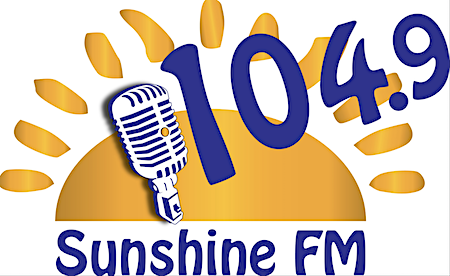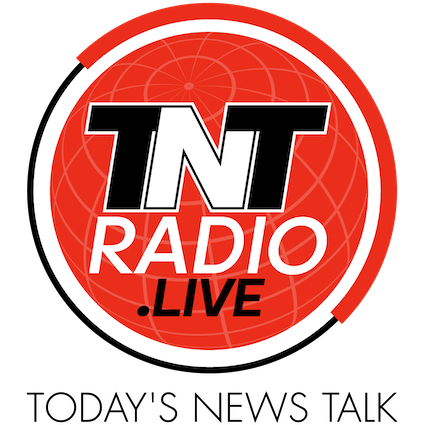The Expat Files: Cameron Plant
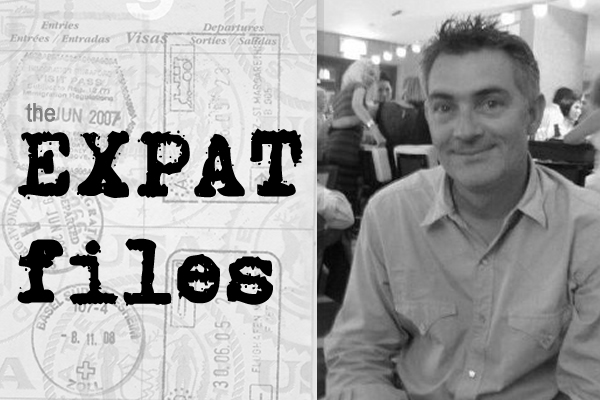
With so many Australian and New Zealand radio professionals doing great work around the world, we like to keep in touch and discover what they used to do here and what they are up to right now. Cameron Plant made the leap overseas a few years back.
It’s a journey that has seen him work in some of the biggest markets in the world. From Europe, Dubai and China, to Malaysia, Indonesia and India. Cameron is the Chief Operating Officer – International Radio – Astro Overseas Limited and VP Astro Radio, Director – Adrep China.
We caught up to talk about his career. We talk about the difference in Sales in the markets he works in versus here back home. How has the digital space impacted their operations? And If you want to make the move to working overseas in radio – what are three cores skills you need?
Where did you get your start and where were you before heading overseas?
I started in radio with ARN in Melbourne after about 8 or 9 years with Win TV. I headed to Triple M with Austereo soon after, in sales. After working and living in Melbourne, Brisbane and Sydney with Austereo, I ended up as the National Sales Operations Manager in Sydney and then the opportunity to consult with Greg Worthington came along and the overseas adventure commenced. Greg and I consulted to stations in about 20 countries, mainly in Europe, particularly Eastern Europe.
And then you made the jump to Dubai….
Yes, an opportunity presented itself at the Arabian Radio Network as Group Sales Director and I spent nearly 2 years there, great place to live.
And then moved to Malaysia to join Astro Radio. What’s your role there?
I got a call out of the blue asking whether I’d be interested in going to KL . I decided to go because the scope of the two roles is extensive and provides plenty of variety day to day and I wanted something with real diversity.
Astro Overseas Limited (AOL) is an investment portfolio company with investments in media assets around the world, including radio in India, China and Indonesia.
In India we have interests in 36 stations, in China 12 stations and in Indonesia 3. I answer to a board for these investments.
In China, I’m more hands on and sit on the board of that entity. In Astro Radio, my role is completely different to the AOL role. There’s five guys who make up the senior leadership team in Astro Radio.
I lead the Digital and Engineering teams. In the Digital Team we have 66 people and in the Engineering Team we have about 30 that make sure the shop opens every day across our 112 transmitter sites across Malaysia.
Astro Radio is a part of Astro Malaysia Holdings (AMH) which is listed here and is like the Foxtel of Australia. We have over 180 DTH channels. At AMH there’s approximately 5000 employees and has a market cap of about $4.5B USD.
How many brands are you dealing with?
Ok, so in India, 3 brands, Red FM, Power FM and Aamar FM. In China it’s MYFM and JIN FM and in Indonesia it’s Jak and Gen FM’s. In Malaysia, we have 9 brands across 4 languages. In Malay we have Era, Sinar and Gegar, in English we have Hitz, Mix and Lite, the Chinese brands are MYFM and Melody and in Tamil we have THR Raaga. 17 brands across 4 countries.
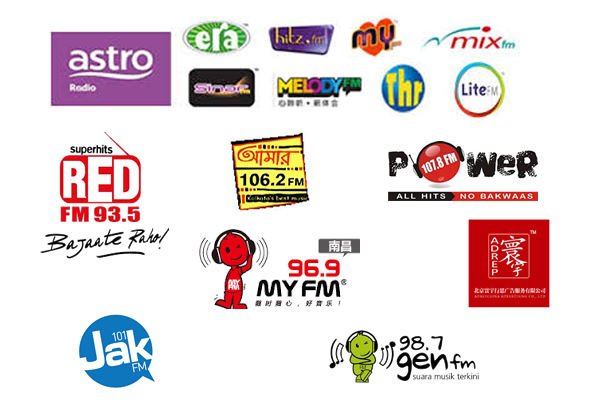
How many Sales people or managers are in the mix with the Malaysian operation alone?
The sales team in Malaysia is big, about 150 when you include coordinators and traffic etc. Our headcount across the business in Malaysia is about 330. In India, the sales team is big, over a hundred as well, in China our head count is about 240 of which about 100 are in sales and the Indonesia business is reasonably small with about 15 guys in the sales area.
Are direct client or mainly agency relationships in play?
Both, and not unlike Australia, the majority of our revenue is derived out of media agencies.
Are the sales challenges any different there compared to Australia?
Not really, from what I remember about Australia and from what guys down there tell me now. Nearly every client and agency here are after some form of multi platform solution, and again, not unlike Australia, the media agencies are highly competitive with each other.
Astro has spread across many parts of Asia… tell us about China….
It’s an interesting market of course. Barry Keohane in a previous expat file article described it pretty well.
It’s big, growing rapidly and like most markets, requires a “local” mentality both on and off air. Not surprisingly, audience numbers are huge compared to Australia. For example, across our 12 stations we have over 11 million people listening to us online every week. Many opposition stations are still block programming, particularly in the smaller markets, but if you listen to radio in Shanghai or Guangzhou, the stations sound like anything you’d hear anywhere else in the world.
The best digital product I’ve seen anywhere is WeChat (the China version). This platform/product offers an audience everything from the Joox streaming service to giving people the opportunity to buy airline tickets, movie tickets….the amount of features it has is incredible and I don’t know anyone up there that doesn’t have it on their phone.
We’ve launched a few new stations already this year in China and we’ll launch a few more before the end of the calendar year and as you can imagine, that’s not an easy task. Our CEO up there is always on the lookout for new markets and new opportunities and we spend a large portion of our time assessing different opportunities. Our goal is to end up with a large network (20 – 30 stations) covering as many of the 20 or so provinces in China. When I first commenced here, I think we had 6 stations in China, so it’s been very busy up there over the past 3-4 years.
What about the Indonesian market?
Jakarta has about 70 commercial stations and fortunately the GEN FM brand is number 1. Listeners love their local music and many stream their favourite station on their phone. Terrestrial listening is declining marginally year after year because of this, but overall listening continues to rise. As you can imagine, when you’ve got 70 stations fighting for a slice of both the audience and revenue pie, there’s serious cost control happening and lots of creativity on air in an attempt to give you a point of difference.
What are some of the main differences you see, say between Australian radio and that of Malaysia, Indonesia, China and India?
We try and have all our stations embrace a “glocal” attitude, both with on air content and the way we manage the businesses. It’s an error if you’re a white guy and come in to an overseas market and say things like “In Australia we do….” , to a guy in Guangzhou or Mumbai or KL or Jakarta, it actually means nothing at all and they don’t care.
What they want to know is how to increase audience, revenue, levels of engagement, brand equity etc…and while they’re happy to hear ideas, they don’t want you telling them what to do. An expat has to listen more than speak and I’ve seen expats thinking they know everything.
The cookie cutter approach to formats in Asian countries doesn’t work that well, it really requires a very tailored approach to each market. In India for example, while Bollywood and Hindi music are huge, the better format in Kolkata is Bengali music. No one is interested in Lady Gaga in Kolkata. The creativity I hear on air in India is almost fearless, they’ll have a crack at almost anything and they’re always trying new things and that’ll continue as more stations launch during this Phase 3 license auction period.
Let’s talk marketing – we can imagine that like here, you are seeing a massive boom in the digital space.. how are your radio brands cutting through?
For sure, not unlike the rest of the world. In Malaysia, we have seen ourselves now for quite a while as publishers in the digital space, not just aggregators, curators or distributors of content.
All our sites, apps etc are not just a replica of what’s happening on air anymore and we have within our suite of products, completely independent sites not related to radio.
Chooky Fowler said in one of your articles that no one listens to the radio, and I agree with him. We’re focusing this year on short and long form video and particularly branded and native content on a video platform. The philosophy we embrace for the digital space in Malaysia is to be the centre of the entertainment universe for Malaysians. Previously, the radio content dictated the digital content, but now we’re content agnostic.
Of all the markets you are involved in across Asia… is there a stand out promotion that comes to mind?
Not necessarily promotion but there was a Corporate Service Responsibility project we executed in Malaysia that first comes to mind. A few years ago, there were serious floods in Malaysia and so we took the initiative not to raise money for the flood victims but to ask Malaysians to donate food and essential items. With Tesco as the partner we were able to send to the flood victims over 400 tonnes of food and clothing etc and it was very inspiring to be part of.
The entire Senior Leadership Team of Astro Radio with all the staff went to Tesco and loaded up pallet after pallet of food etc donated by Malaysians to be transported to the flood affected areas. We had the armed forces, air force etc help us transport the goods and on air all of our 9 brands committed to it. The activity lasted for about 3 weeks.
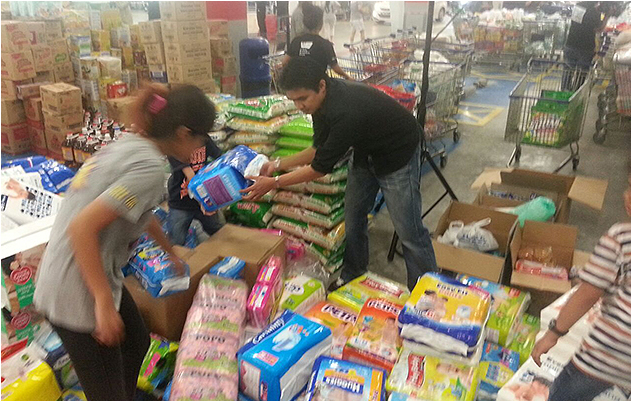 The other activity to note was how we responded to the MH370 tragedy. The plane disappeared overnight on the Friday and by Saturday morning, regarded as missing….by early Saturday afternoon we’d changed all the clocks on each station, changed the music, changed all our digital properties to “grey” and then followed up for the next two weeks with special news reports and other content.
The other activity to note was how we responded to the MH370 tragedy. The plane disappeared overnight on the Friday and by Saturday morning, regarded as missing….by early Saturday afternoon we’d changed all the clocks on each station, changed the music, changed all our digital properties to “grey” and then followed up for the next two weeks with special news reports and other content.
Things like, making sure we don’t play songs that had any plane references etc….we needed to be laser like in our focus to get it right. Very sad time to be here, but again, the way the Astro Radio team reacted was inspiring and reflective of the kind of culture we have in the business.
If you want to make the move to working overseas in radio – what are three core skills you need?
Leadership, strategy and execution in my mind will always be the key to any role in radio, whether it’s here in Malaysia, India, China or Indonesia…anywhere really.
Many expats work in a place and don’t commit emotionally to the role, the business, the staff, the country etc…and I think it’s important to do so. You need to be very adaptable, what works in Australia or the UK won’t necessarily work in an Asian country so you need to be flexible.
Guys like George Chapman and Chooky Fowler broke new ground for expats that followed, particularly in Malaysia. I think the difference now is, and this might be reflective of the development of these businesses here, an expat can no longer just be expected to consult, recommend, advise…as an expat now you really need operational responsibilities with specific KPI’s and deliverables that relate directly back to a P&L and operational efficiency.
And last but by no means least, you need a really good sense of humour to survive. A red traffic light or stop sign in KL is taken by many drivers as a suggestion not an instruction.
Does knowing the language help?
I think it certainly helps in China. Clayton Fitts , an Aussie in our China business speaks Mandarin fluently and given he’s heading content up there, he’s hearing things and able to communicate with staff so much easier than if he didn’t speak Mandarin.
How often are you on a plane visiting a market?
Every couple of weeks, just depends what’s going on and what the business requirements are.
Best Hotel overseas?
The Taj Mahal Hotel in Delhi is pretty special.
Do you get back home often?
Last year I went back 5 times, year before, I think once, year before that, once as well.
Let’s talk Australian Radio, what are your thoughts?
triple j is doing an amazing job. They don’t have the marketing budgets of the commercial stations, yet last year in Sydney ended the year as number 1 audience share 18-39.
Australian radio is still world class but as the commercial networks continue to get closer together in audience and revenue share, it’ll be interesting to see who has the most courage to experiment creatively on air and take chances.
The biggest risk taking I’ve seen in the last couple of years was ARN taking Kyle and Jackie and rebranding Mix, and it really worked out for them. The battle appears now to be in Melbourne and if ARN get to number 1 in Melbourne, and stay number 1 in Sydney, I think they’ll dominate revenue share across the metros.
As the media laws look like changing sooner than later, I’m sure all the commercial networks are working to get their P&L’s and balance sheets in line to maximise any merge or acquisition opportunities.
How they then respond to day to day operational requirements and opportunities now, that might impact their variable costs on the P&L, will be interesting to watch. The winner/s will be the one’s who can strike the right balance between risk taking and prudent financial judgement in combination with great leadership, strategy and operational execution.
